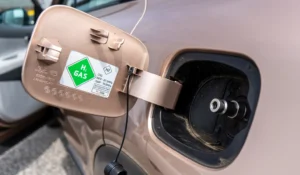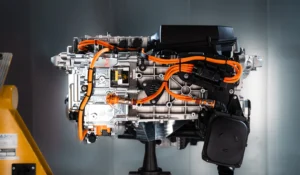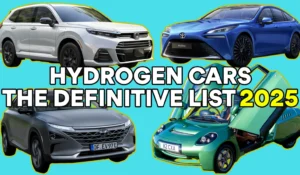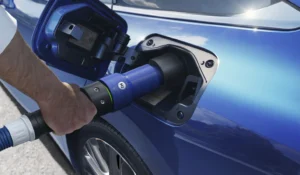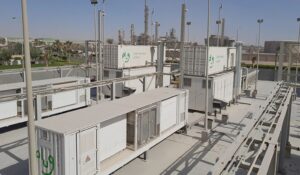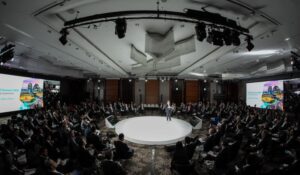TotalEnergies and Air Liquide scale up green hydrogen to decarbonise refineries in northern Europe
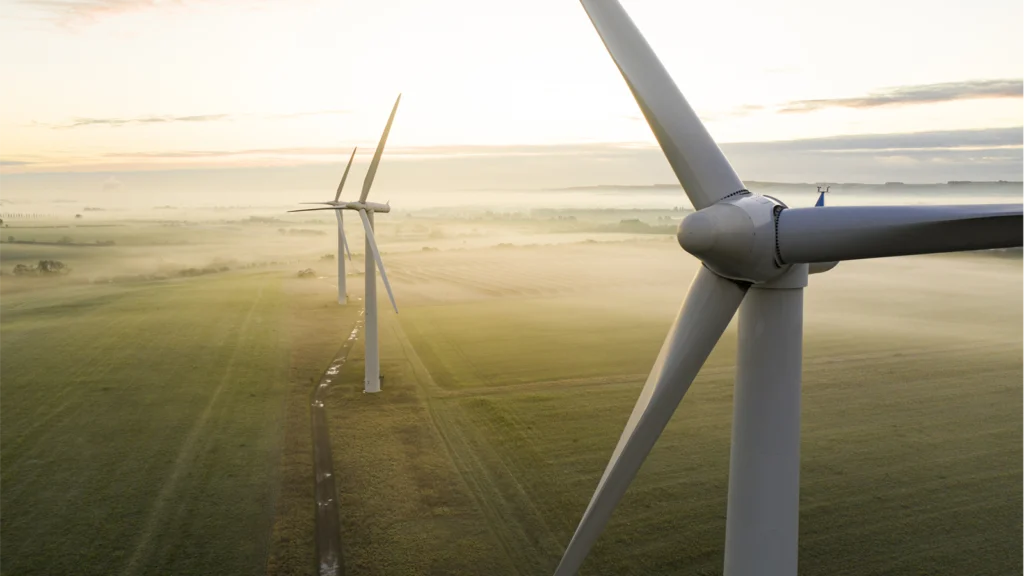
TotalEnergies and Air Liquide have signed major agreements to expand industrial-scale green hydrogen production in northern Europe.
The two projects aim to cut 450,000 tonnes of CO₂ per year, slashing refinery emissions in Belgium and the Netherlands.
According to both companies, these efforts will rely heavily on renewable power from the OranjeWind offshore wind farm, co-developed by TotalEnergies (50%) and RWE (50%).
They claim this initiative could collectively produce 45,000 tonnes of green hydrogen per year and slash up to 450,000 tonnes of CO₂ emissions annually – roughly the same as taking about 100,000 passenger cars off the road.
Key announcements & agreements
- Scope: TotalEnergies and Air Liquide have signed deals to develop two green hydrogen projects, primarily to decarbonise TotalEnergies’ refinery operations in Belgium (Antwerp) and the Netherlands (Zeeland).
- Renewable power source: Both projects will be powered by renewable electricity from the OranjeWind offshore wind farm.
- CO₂ target: The companies state they aim to reduce up to 450,000 tonnes of CO₂ emissions per year, helping meet European renewable energy goals, particularly in transport and other hard-to-abate sectors.
Green hydrogen production
Zeeland Electrolyzer (Joint Venture)
- Location: Near TotalEnergies’ Zeeland refinery, Netherlands
- Capacity: 250 MW (up to 30,000 tonnes of green hydrogen per year)
- Ownership: 50/50 joint venture between TotalEnergies and Air Liquide
- Estimated investment: ~€600 million, with requests for European and national subsidies
- CO₂ reduction: Potentially 300,000 tonnes per year at the Zeeland refinery, according to TotalEnergies
- Operational timeline: Targeting 2029
ELYgator Electrolyzer (Tolling Agreement)
- Location: Maasvlakte, Netherlands
- Capacity: 200 MW total, with 130 MW allocated to TotalEnergies
- Output: 15,000 tonnes of green hydrogen per year
- CO₂ reduction: Air Liquide estimates up to 150,000 tonnes per year at the Antwerp refinery in Belgium
- Operational timeline: End of 2027
Vincent Stoquart, President, Refining & Chemicals at TotalEnergies, described the collaboration as a critical step in reducing the carbon intensity of the company’s European refineries, saying:
“Following the first partnership agreement with Air Liquide to supply the Normandy refinery with green hydrogen, and the agreements to supply the Grandpuits and La Mède biorefineries with renewable hydrogen, the partnership with Air Liquide takes on a new dimension and marks a new step in TotalEnergies’ ambition to decarbonize the hydrogen consumed by its refineries in Europe by 2030.
“By supplying these two electrolyzers with renewable electricity from our offshore wind project in the Netherlands, TotalEnergies is leveraging its positioning as an integrated electricity company.”
Emilie Mouren-Renouard, member of the Air Liquide Executive Committee in charge of Europe operations, emphasised Air Liquide’s role in scaling up renewable hydrogen, saying:
“Flagship projects such as the ones we are announcing today will play a key role in reducing emissions, particularly in hard-to-abate sectors such as industry and heavy mobility.
“We are proud to lead the way on European renewable and low-carbon hydrogen production, and to accompany TotalEnergies in their journey to decarbonizing their industrial assets.
“These two projects will complete the five Air Liquide low carbon units already in operation or construction in Europe.
“This illustrates our capacity to offer concrete solutions to our customers, to reach our carbon neutrality ambition by 2050, and to support Europe’s leadership ambition towards decarbonized growth. It also demonstrates the ability of Air Liquide to develop solid business models in the energy field of low carbon hydrogen.”
TotalEnergies’ wider decarbonisation strategy
TotalEnergies states it intends to cut around 3 million tonnes of CO₂ per year by 2030 by shifting to low-carbon hydrogen across its European refineries.
The company says it has already contracted more than 170,000 tonnes of green hydrogen annually, feeding sites such as:
- La Mède (France)
- Grandpuits (France)
- Normandy (France)
- Leuna (Germany)
Other refineries in Belgium and the Netherlands
According to TotalEnergies, phasing out fossil-based hydrogen in these locations is a key move toward meeting its longer-term climate targets.
Project summary
| Project | Location | Capacity | Hydrogen output | CO₂ reduction | Start date |
| Zeeland electrolyzer (JV) | Netherlands (near refinery) | 250 MW | 30,000 tonnes/year | Up to 300,000 tonnes/year (Zeeland site) | 2029 |
| ELYgator electrolyzer | Maasvlakte, Netherlands | 200 MW total (130 MW for TTE) | 15,000 tonnes/year | Up to 150,000 tonnes/year (Antwerp site) | End of 2027 |
Takeaways
- Industrial-scale deployment: Both companies emphasise that these are not pilot projects but large-scale installations designed to deliver substantial emissions reductions.
- Offshore wind integration: By leveraging OranjeWind’s renewable electricity, the electrolysers are expected to avoid the carbon footprint associated with conventional hydrogen production.
- European hydrogen ambitions: The Netherlands is positioning itself as a hub for clean hydrogen, and these projects might support the EU’s broader goals for renewable energy in sectors such as refining and transport.
- Joint funding and subsidies: With a price tag of around €600 million just for the Zeeland electrolyser, the partners are seeking financial support from multiple sources, highlighting the capital-intensive nature of hydrogen ventures.
Conclusion
TotalEnergies and Air Liquide’s hydrogen projects represent one of the largest industrial decarbonisation efforts in Northern Europe.
These electrolysers will supply 45,000 tonnes of green hydrogen per year, significantly reducing refinery emissions and accelerating Europe’s clean hydrogen economy.
If scaled successfully, projects like these could accelerate cost reductions in green hydrogen, making it viable for wider applications – including transport, industry, and heavy mobility.

